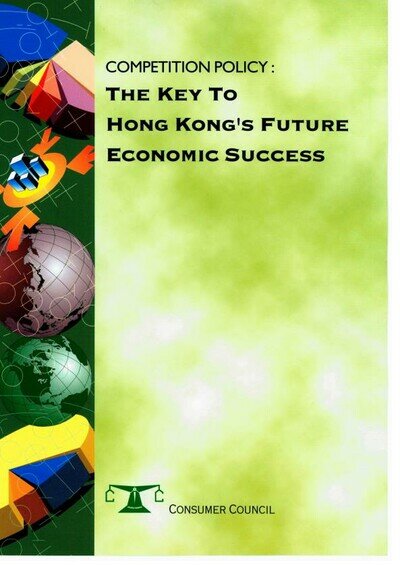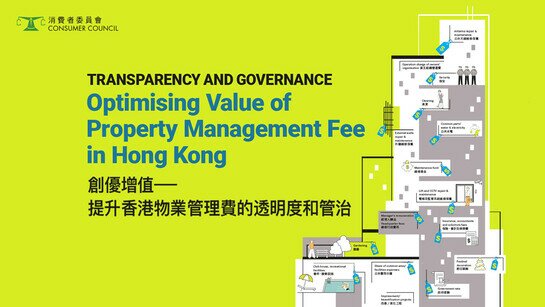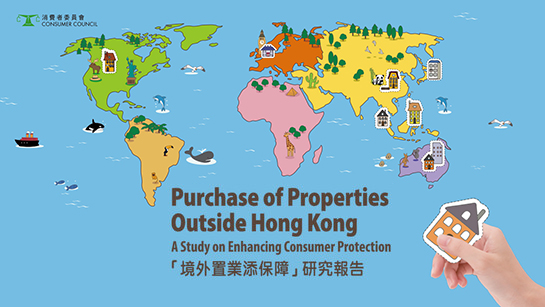
Executive Summary
HONG KONG'S ECONOMIC CHALLENGES
Hong Kong has enjoyed great success in recent decades. It has experienced strong and sustained real GDP growth and has amongst the highest GDP per capita in the world. It's strong economic performance has been due in part to its strategic geographical location on the doorstep of China and easy access to other South East Asian countries. The advent of telecommunication technology and other forms of communication has, however, lessened the importance of Hong Kong's geographical advantage. At the same time Hong Kong's advantages in other areas have been narrowing as Hong Kong's competitors continue to transform their economies and adopt laws and policies which encourage foreign trade and investment. Hong Kong therefore faces an enormous challenge in maintaining its competitive edge.
In the past two decades, Hong Kong has undergone an economic structural change from a manufacturing-based economy to a service economy. The services sector has rapidly expanded and replaced the manufacturing sector as the major economic activity in Hong Kong, and the export of services has become an important impetus for economic growth. The Hong Kong Government expects the services sector to be the engine of future economic growth and has said that it will ensure that the markets for services are as open and competitive as possible.
Not all markets in service sectors are automatically highly competitive under a laissez-faire regime. Unlike the manufacturing sector, in which most goods are traded in the international market and therefore subject to international competition, the services sector includes some services which can only be provided domestically. Such services, for example, legal and accounting services, medical and dental services, public utilities, local radio and television broadcasting, retail banking services and other services such as restaurants and supermarkets are, therefore, insulated from international competition.
In its earlier studies of key sectors of the Hong Kong economy, the Consumer Council found a low level of competition in several sectors, eg, bank deposits, supermarket sales and gas supply.
High property and wage costs in Hong Kong, which account for a substantial and increasing percentage of overall operating costs, particularly in the service sector are a matter of real concern. The Hong Kong Competitiveness Report, commissioned by Vision 2047 Foundation which is supported by prominent business leaders in Hong Kong has succinctly summarised the challenge for Hong Kong as follows: "Cost pressures felt in Hong Kong have highlighted the need for improved competitiveness and cost effectiveness throughout the economy. While free and open competition has long been the case in the traded sectors of the Hong Kong economy, this has not been the case in some non-traded sectors. Since they do not face direct competition, it is important to ensure that the monopolies and oligopolies found in Hong Kong operate at maximum efficiency." 1
In a similar vein the Hongkong Bank in its Economic Report for September/October 1996 said, "Maintaining external competitiveness, particularly in the service sector, will be one of the main challenges......rising service export prices primarily reflect the generally higher cost of operating in Hong Kong. Between 1991 and 1995, nominal wages rose by an average of 9.5%......occupancy cost in Hong Kong also ranks among the highest in the region". 2
A comprehensive competition policy and a body of law can remove barriers to entry and ensure free competition which is not distorted by price fixing, market sharing or other anti-competitive practices. This will have the overall benefit of keeping operating costs at a competitive level.
It is important, therefore, that competition should be encouraged. It should, however, be stressed that the an important aim of competition policy is to keep intervention to a minimum by setting clear ground rules that ensure fair play. Once the ground rules are in place it should not normally be necessary for the body responsible for administering the policy to intervene in the affairs of companies.
THE INTERNATIONAL DIMENSION
There is also an international dimension to the need for a new approach. International bodies, such as the World Trade Organisation (WTO), are increasingly making links between competition policy and trade policy. Hong Kong's ability to argue for improvements in trade policy and to argue against measures which may damage its interests will be hampered by the absence of a competition law at home. International bodies and other states are starting to perceive problems both in particular areas of Hong Kong's economy and in the general absence of a competition law.
With its free trade policy, Hong Kong is well placed to argue for international competition policy to replace traditional protectionist trade policy and discriminatory measures such as anti-dumping action. However, Hong Kong's influence will undoubtedly be weakened by its lack of a comprehensive domestic competition policy.
The open nature of Hong Kong's economy and the clear advantages it has over other cities in the region ameliorated the effects of this lack in the past. The Government has been able to operate a policy of introducing specific solutions for specific problems. However, in the changing economic climate the old policy will no longer suffice.
THE ADVANTAGES OF INTRODUCING A COMPREHENSIVE COMPETITION POLICY
In a series of reports issued over the past two years, the Consumer Council has identified industries where imperfections in the market have raised prices to consumers and businesses. It has received other complaints which it could not investigate because it lacked adequate powers. There is no doubt that there are sectors where a lack of competition is forcing up prices and thus fuelling inflation. If Hong Kong does not adopt a comprehensive competition policy it denies itself an effective weapon in the fight to maintain its international competitiveness. The experience of introducing competition, even though limited, into the telecommunications market shows how effective competition can be in bringing down prices.
Most developed economies have competition law. Newly industrialised economies such as South Korea and Taiwan have such laws and the Anti-unfair Competition Law of Mainland China includes provisions against price-fixing and abuse of dominance.
For business a comprehensive competition policy has the advantages of fairness, consistency and reduced regulation. It is fair because it acts against anti-competitive practices that can drive efficient and well-run companies out of business. It is consistent because it is applied by a single authority working to a single set of published rules. The Government's present piecemeal approach has led to differences in the competition provisions of licences issued to broadcasting companies. Provisions in the telecommunications licences are more specific and clearly set out than that contained in the broadcasting licences.
A comprehensive policy can lead to a reduction in regulation. It is pro-active, efficient and effective avoiding the need to commit manpower and time to devising new rules when new products or markets emerge.
Competition policy recognises that there are some natural monopolies where factors such as economies of scale make it more efficient to have one operator but the competition authority would work closely with the regulators and would review existing or proposed regulations and report to the Government on whether they have significant adverse effects that might outweigh the benefits.
For the consumer, the experience of competition policy in Hong Kong as it has been applied in specific sectors such as telecommunications and banking is that it leads to lower prices, product innovations, more choices and improved services. An improvement in the coverage of competition law and a reduction in the time taken to remove barriers to competition must be good news for the consumer.
RECOMMENDATIONS
The Consumer Council strongly recommends the adoption of a comprehensive competition policy and enactment of a general competition law in Hong Kong. Competition law is an integral part of policy. This is because legal enforcement is the only transparent and effective way to prevent and deal with restrictive conduct.
The aim is to create a policy which is pragmatic and cost effective. The proposals on the design of such a policy are not intended to be prescriptive but to provide a starting point for further work if the recommendation to adopt comprehensive competition policy is accepted.
Competition Policy
The Consumer Council believes that an effective competition policy requires a wide-ranging and pro-active approach to promoting competition. To achieve this, the Consumer Council recommends:
action to promote an understanding of the aims of competition policy within Government as a whole, the business community and members of the public;
a new system or procedure to ensure Government decisions and the design of all Government policies and decisions give regard to the implications on competition. The procedure might be similar to that of environmental impact assessments required for major government policy decisions (where applicable). New proposals for regulation should be scrutinised to filter out those that are not strictly necessary;
scrutiny of existing regulations to ensure that they are still necessary, effective and/or their objectives could not be achieved by other means, e.g. a review of statutory monopolies, procedures for awarding franchises, and Scheme of Control industries with the aim of increasing competition at the earliest possible opportunity.
Competition Law
The Consumer Council strongly recommends the enactment of a competition law to cover horizontal and vertical collusive agreements and abuse of dominant position, to be expressed in the Articles 1 and 2 below. This is a pragmatic approach suitable to Hong Kong.
Article 1: to prohibit explicit agreements between firms that are intended or have the effect of preventing, restricting or distorting competition. These include horizontal agreements such as those involved in price-fixing cartels, bid-rigging, etc and vertical agreements such as retail price maintenance, exclusive dealership, tie-in sales, long-term supply contracts, etc.
Article 2: to prohibit any abuse by one or more undertakings of a dominant position that prevents, restricts or distorts competition. This would address monopoly pricing, and vertical restraints such as tie-in sales enforced through market dominance.
Without these articles, the competition legislation would not only be much less effective but not necessarily accepted as adequate in the international arena.
The proposed competition law should also include:
an article controlling the abuse of collective dominance; and
an article for the control of mergers and acquisitions.
There are, however, pragmatic arguments for delaying the introduction of these two articles. The arguments are finely balanced and the Consumer Council recommends that the Government decides how to proceed in the light of the debate that will follow the publication of this report.
Exemptions
The Consumer Council recommends that exemptions to Articles 1 and 2 should be strictly controlled and, where possible, time-limited, in order to be consistent and fair to all industries. Where possible, the Competition Authority should publish a block exemption which would remove the need for companies to seek individual exemption.
Administrative Framework
The Consumer Council recommends:
a Competition Authority should be established to investigate and decide on possible breaches of the Competition Law; and
an Appeal Body should be established to hear appeals against decisions by the Competition Authority.
Competition Authority Structure
The Consumer Council recommends that:
the Competition Authority should be an independent body outside the civil service;
the Competition Authority should have a full-time chairman and other members appointed by the Chief Executive of the Hong Kong Special Administrative Region.
Duties
The Consumer Council recommends that the Authority should be given the following duties:
to advise the Government on competition policy;
to ensure compliance with the Competition Law;
to consider and suggest reforms to the relevant legislation; and
in addition, the Competition Authority should have a widely defined general public interest 'deregulation' duty, to become aware of circumstances leading to a lack of market contestability and, in the performance of this or his specific duties, to recommend to Government changes to regulation to facilitate competition in the public interest. Such recommendations should be made public.
Powers
The Consumer Council recommends that the Competition Authority should have powers to:
initiate investigations, or to act on the recommendations of others; and
issue notices requiring the company to cease and desist from a practice deemed to be illegal, if in the course of its investigation, the Authority is satisfied that such a practice is illegal.
Consideration should also be given on whether the Competition Authority should have injunctive powers.
Penalties
The options for consideration are whether simply to rely on injunctive powers, or to impose fines or award compensation to third parties.
Appeal Body
The Consumer Council recommends that the Competition Authority's decisions are subject to review by an Appeal Body rather than the courts. Decisions of the Appeal Body would be final. The Appeal Body should be clearly separated from the Competition Authority.
The Chairman of the Appeal Body should be appointed by the Chief Executive of the Hong Kong Special Administrative Region. The Chairman should convene and chair tribunals, to deal with specific cases on an ad hoc basis. The other members should have experience relevant to competition and business.
The tribunals should publish detailed reports of their findings, withholding only commercially sensitive information.
CONCLUSION
Hong Kong has enjoyed great success in the past but its advantages are narrowing as its competitors transform their economies and adopt laws and policies that enhance their competitiveness in international trade. To stay ahead, Hong Kong can no longer afford to ignore the problems that stem from a lack of clear rules against anti-competitive practices and an Authority to enforce them. Hong Kong's position in the world economy will be jeopardised if it is unable to play a full role in the international debate on competition and trade policy now taking place.
It is, however, essential that the changes Hong Kong adopt reflect its own culture and traditions. The time has come for the debate to move on from the question of whether Hong Kong should have a competition law to ensuring it has a law that will safeguard future prosperity. Devising such a law needs the constructive engagement and active support of the whole community.
Notes:
1. Vision 2047 Foundation (July 1996), The Hong Kong Advantage: A Study of the Competitiveness of the Hong Kong Economy, page. 6.
2. Hongkong Bank Economic Report (September/October 1996), Hong Kong's Service Sector: Growth and Competitiveness, pages 1 and 4.











